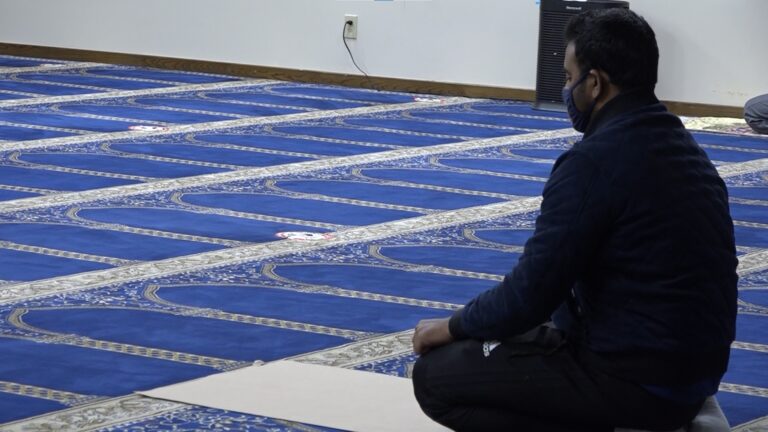URBANA – For the second year in a row, Muslims in the Champaign-Urbana community are observing Ramadan in the middle of a pandemic.
During Ramadan 2020, it was difficult to adjust the usual Ramadan traditions to the new norms set forth due to the pandemic, such as social distancing, says Waleed Jassim, president of the Central Illinois Mosque and Islamic Center.
“Normally we’re supposed to pray shoulder to shoulder,” he says. “My shoulder would touch the other person’s shoulder, and this was really hard for us because it feels so awkward and weird.”
Now, as Muslims enter the second week of Ramadan 2021, observers are applying lessons they learned from last year’s holiday, which took place at the start of the pandemic.
Ramadan is a month-long tradition, that follows the Islamic Calendar, where observers take time to reflect, pray and provide charity. One of the more notable Ramadan traditions is the fast, where observers are not allowed to eat or drink anything from sunrise to sunset.
“Fasting is supposed to make people feel what poor people feel when they are hungry,” Jassim says. “Many people have never been hungry, so [fasting] would give you a feeling about what other people who cannot afford to eat feel.”
Fasting also makes people appreciate food more and provides a look into our human nature, he says.
“If [you] see a child has a piece of cracker, that cracker looks so delicious because you’re not eating,” says Jassim. “It also shows how weak we are as humans.”
Prior to the pandemic, mosques such as CIMIC would give out meals to families after the fast broke at sunset. But with Ramadan 2020 occurring very early in the pandemic, all functions at the mosque had to stop.
Instead, CIMIC brought the meals closer to families.

“Last year, we had people go to a local restaurant and ask for the food and the restaurant would give it to them for free,” says Jassim. “Basically, we donated to these restaurants to give food to the people who come and ask.”
This year, CIMIC is applying lessons from last year, providing a hybrid approach where families can either get food at the mosque or a participating restaurant.
Some in the central Illinois Muslim community say last year’s Ramadan experience prepared them for this year’s.
Takeya Alamin of the Muslim-American Society Urbana-Champaign says he didn’t experience as much sadness this time around.
“Yes, I like to get together with my friends, my family and my community,” she says. “But last year gave me an idea of what it would be like this year, and I really enjoyed it.”
Alamin is a board member of MAS Urbana-Champaign, which provides education and activism to young Muslims in the community. Normally, the classrooms in MAS Urbana-Champaign are filled, but because of the pandemic, she says the building has been empty since March. A calendar featuring March 2020 can be seen within the lobby.
For Alamin, the past year has allowed for more bonding between her and her family.
“Usually when we go to the mosque, my kids will go and pray in this one area, and I’ll pray and my husband prays with the men, and so in Ramadan we’ve been able to pray as a family and it’s just been really nice,” says Alamin.
Alamin says in the past, she has had to work Ramadan around her daily life. But being at home these past two Ramadans have given her more time to fully embrace the holiday.
“Because we were so secluded from the community, we did a lot of personal reflection on our own selves and our connection with God, so that’s been happening even more with COVID,” she says. “There’s aspects of life you cannot change. But I think from now on, for future Ramadans, I’m going to try to reduce as much activity as possible.”
Ramadan continues through sundown on May 12.

